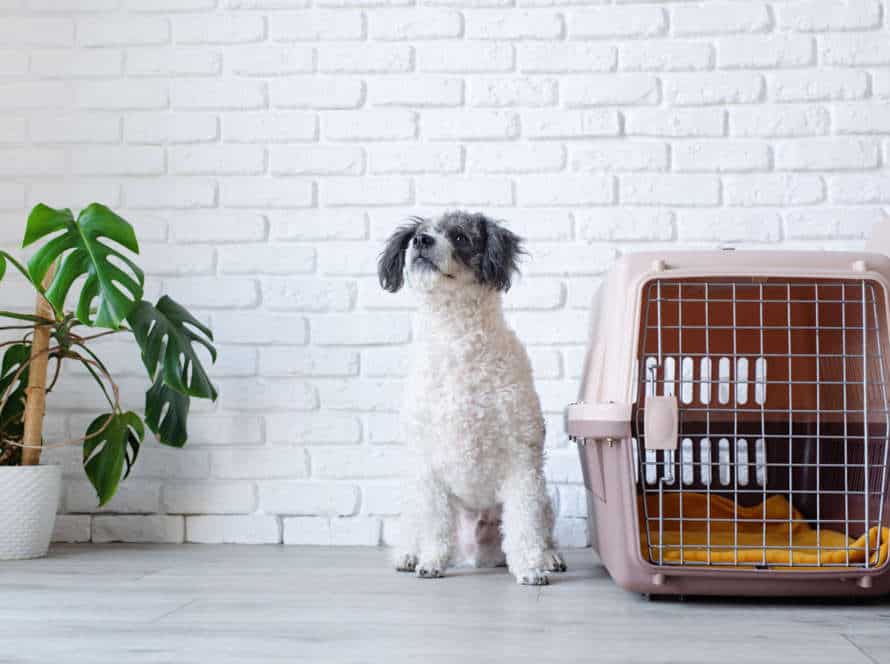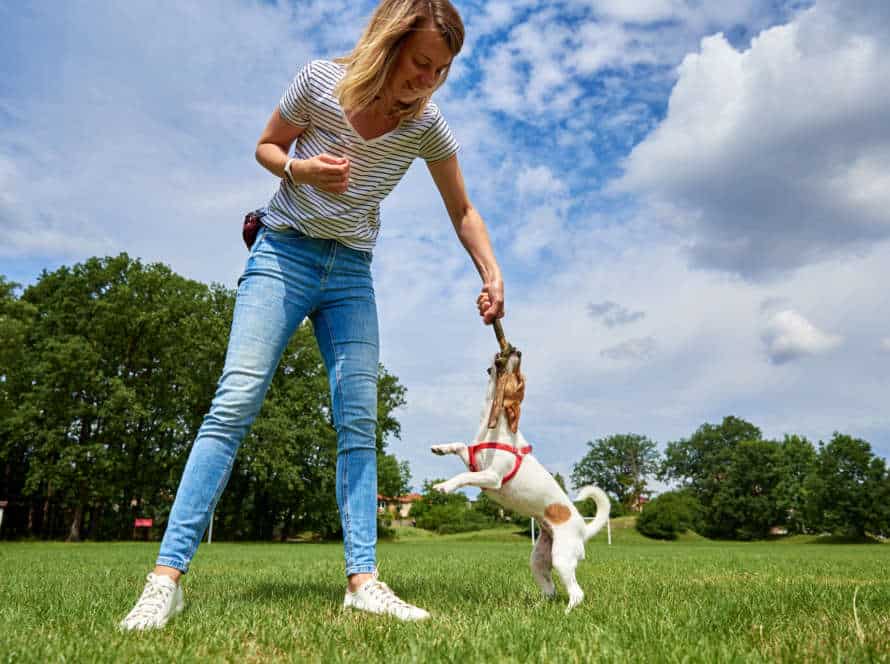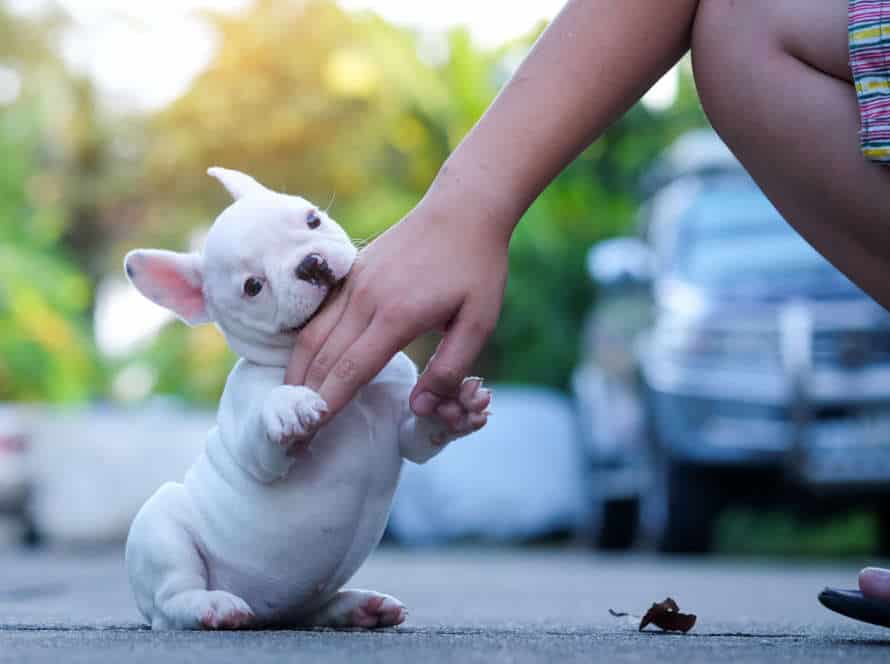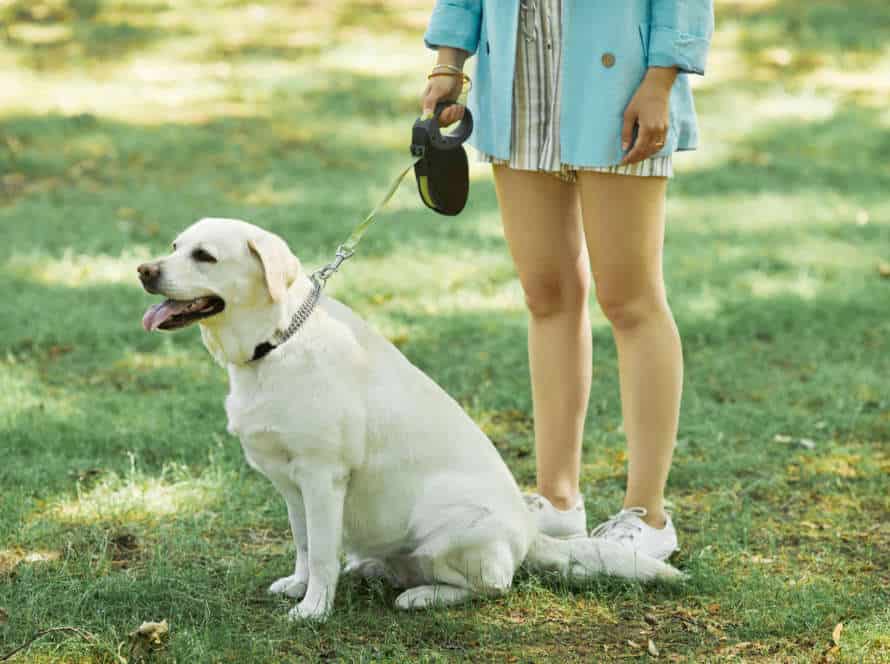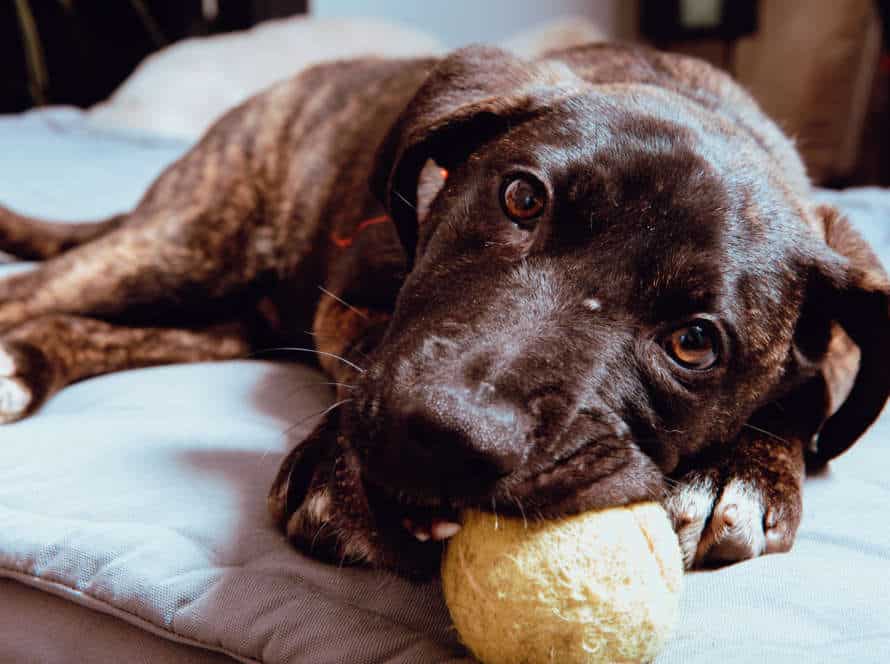The Importance of Patience and Persistence in House Training Success
Patience and persistence are must-haves! These traits are essential to success when house training your pup. Staying calm and having a consistent routine is key! Why?
- Patience helps you deal with your doggie’s mistakes. Remember, all dogs learn at their own pace. Reward them when they do it right!
- Persistence builds a routine for your dog to follow. Make sure to include regular meal and potty times for better learning.
Housetraining isn’t an overnight process – it takes time, patience, and persistence. Keep this in mind and you’ll have a happy, obedient pup in no time! Pro tip: Always keep cleaning supplies on hand for any accidents.
Understanding the House Training Process
House training your pet can be difficult. So, stay patient! Have a regular routine and understand the process. This will help you and your pet.
Patience and persistence are important. They can make a big difference in the outcome. It’s key!
Knowing your puppy’s schedule
Knowing your pup’s schedule is vital for house training. By understanding when they are most likely to need to go out, you can create a routine. Here’s what you need to know:
- Pups often need to go out after waking, eating and playing.
- They can only hold their bladder for a few hours, so take them out every 2-3 hours.
- Watch for signs like sniffing and pacing, as these are signs that they need to go out.
- Be patient and persistent. Accidents will happen and it may take weeks or months for your pup to be trained properly. Consistency and positive reinforcement will help them learn the desired behavior.
Establishing a designated potty area
A special potty area is essential for house training.
Persistence and consistency are essential.
Choose a designated spot in your yard.
Tell them to “go potty” or “do your business”.
Reward them with a treat or praise when they go in the right spot.
Don’t punish them for mistakes.
Be patient and consistent.
It will take time, but your dog will understand eventually.
Every dog is different.
Patience, persistence and consistency are the keys for success.
Using positive reinforcement
Positive reinforcement is key for successful house training your furry pal. It will help the process go smoother. Here’s how to use it:
- Whenever your pup poops outside, praise and reward them. Speak a consistent phrase, like “good potty” or “good job“.
- If they have an accident inside, don’t scold them. Instead, clean up the mess and look out for the next chance to reward good behavior.
- Eventually, your dog will start to view eliminating outdoors as a positive thing. Just be patient and consistent – learning takes time!
Pro tip: Establish a regular feeding and elimination schedule to make the house training more effective.
Overcoming House Training Challenges
House-training is a time-consuming process. It’s necessary for pet parents and their pups. It’s a part of a puppy’s development. Seize the chance to foster a connection and teach your pet the boundaries. Follow these tips and you’ll house-train your pup quickly!
Dealing with accidents and setbacks
Training your pup to stay inside can be tricky. Stay patient and stay strong, even when you face issues! Here are some tips for overcoming any accidents and setbacks:
- Be cool. Don’t punish your pup. It may just scare them and make things worse.
- Clean up the mess. Get rid of any smells that may attract your pup back to that spot.
- Create a routine. Take your pup outside often.
- Crate training could help with preventing accidents and give your pup a cozy space.
By being patient and persistent, you can help your pup become the best behaved and happiest pup in your house!
Pro tip: Reward them for good behavior and progress to motivate and reinforce positive habits.
Addressing potential medical issues
When house training your pet, patience and persistence are essential. But, medical issues can be a hindrance. Here’s what to know:
- Check with the vet, to see if there is a medical issue such as a urinary tract infection, GI problems, or diabetes.
- Also, insufficient water, feeding, or anxiety could be the cause.
- Once medical issues are addressed, use positive reinforcement to encourage desired behavior.
- With consistency and time, your pet will learn to go outside for potty breaks.
- Pro tip: Stay consistent with regular potty breaks and positive reinforcement for success.
Handling transitions and changes in routine
Handling changes and transitions in routine is key for tackling house training issues with your pup. Anxiety, confusion, and a lack of progress can all come with sudden changes in environment or schedule. However, with patience and persistence, you can assist your furry buddy to adjust to novel situations and get back on track with their toilet training.
Some tips to manage changes and transitions in routine:
- Slowly expose your dog to new rules, schedules, and settings.
- Stay as consistent as possible with the routine.
- Praise, give treats, and play when your pup does something good.
- Offer empathy and understanding for your dog’s needs and restrictions.
- Speak to a dog trainer or behaviorist if needed.
Remember, potty training is a process and hiccups are normal. With patience and persistence, you can help your furry pal become a successful and dependable housemate.
Avoiding Common House Training Mistakes
House training your pet is complex. It needs patience and persistence from both you and your furry friend. But, many pet owners make mistakes which can ruin the process. Let’s have a look at some common mistakes to avoid for successful house training.
Punishing your puppy for accidents
Don’t punish your puppy for accidents – it can break their trust in you and make them scared, anxious or aggressive. Patience and persistence are the keys to successful house training. Celebrate even small successes, and don’t scold them. It takes time, but if you stay consistent with your training, your pup will get it!
Pro tip: Keep a routine, reward good behavior with treats, toys and praise. That’ll help them learn faster.
Neglecting your puppy’s needs
Neglecting your pup’s needs during house training can cause accidents and behavioral issues. To guarantee your pup’s success, remain patient and dedicated to the training.
Here are a few common house training errors to evade:
- Not having a routine for eating, sleeping, and playing.
- Not overseeing your pup during training and permitting them to wander unsupervised.
- Penalizing your pup for accidents instead of guiding them to the proper behaviour.
- Expecting too much too soon and setting unrealistic objectives or timelines.
Pro Tip: Always reward your pup with praise, treats, and playtime when they do well in training. This positive reinforcement will motivate them to repeat the desired behaviour and create a lasting bond between you and your furry companion.
Rushing the process
Making too much haste can be one of the most common blunders pet owners make when house-training. This can cause accidents and slow down the training! Here’s how to avoid it:
- Be Patient. House-training takes time and patience. Don’t pressure your pet.
- Follow a Schedule. Set a consistent pattern for feeding and bathroom breaks. This will help form good habits.
- Use Positive Reinforcement. Rewarding desirable behavior will make the process more fun for both of you.
- Stay Persistent. Consistency is essential when training your pet.
Therefore, don’t rush! This will only slow down the training. Show patience and perseverance for a trained pet.
Staying Consistent and Persistent
Patience and persistence are essential to success in house training your pet. It’s no easy task! Effort and dedication are a must. Consistency is also vital. Keeping expectations and methods the same will help your pet understand the rules. So, how do you stay consistent and persistent when house training?
Sticking to a routine
A routine is the key to train your pet properly. Consistency and patience are vital. Here’s how to stay on track:
- Set times for feeding and bathroom breaks.
- Choose a spot in the yard for bathroom needs.
- Create a system of communication between you and your pet, like a command word or signal.
- Monitor progress and adjust your routine accordingly.
- Stay patient and don’t give up when faced with challenges.
A pro tip: Positive reinforcement, like treats and praise, will motivate desired behaviors and help stick to the routine.
Continuously reinforcing positive behavior
Want to train your pet? Consistency is key! Establish a routine – and stick to it. Reinforce good behavior with praise, treats, or playtime. Correct unwanted behavior with a firm but not aggressive voice. Be patient and persistent. Every pet is unique – so don’t give up even if progress is slow. Pro tip: House training can be tough – but stay positive and reinforce desired behavior. You can succeed in training your pet to be a well-behaved member of your household.
Maintaining a positive and patient attitude
For successful pet house training, a positive & patient attitude is a must. It’s not easy to stay consistent & persistent while training your pet, but giving up is not an option!
Persistence pays off when it comes to house training your pet. It takes time, patience & consistency to establish good habits & effectively train your pet.
This involves keeping a set routine, setting clear boundaries & expectations, and rewarding good behavior.
Always stay positive when training & never use physical punishment or aggression. Remember that each pet is unique & may respond differently to training, so adapt your methods to their personality & behavior.
Pro Tip: Celebrate small successes to stay motivated & positive!
Frequently Asked Questions
Q: Why is patience important in house training success?
A: Patience is important because puppies or dogs need time to learn and adjust to new routines and habits. It can be frustrating at times, but being patient and consistent with training will lead to better success in the long run.
Q: How long does it take to house train a puppy?
A: Every puppy is different and the timeframe can vary. Generally, it takes around 4-6 months to fully house train a puppy.
Q: Why is persistence important in house training success?
A: Persistence is important because it takes time for puppies or dogs to develop good habits. It’s important to be consistent with training and not give up if there are setbacks. Consistency and persistence in training will lead to better results.
Q: What are some common mistakes to avoid in house training?
A: Some common mistakes to avoid include punishing the puppy or dog for accidents, not using positive reinforcement for good behavior, not being consistent with training, and not monitoring the puppy’s behavior closely enough.
Q: Can older dogs be house trained?
A: Yes, older dogs can be house trained, but it may take longer than with a puppy. It’s important to be patient and consistent with training and be willing to make adjustments to the routine as needed.
Q: What are some tips for successful house training?
A: Some tips include establishing a routine, rewarding good behavior, supervising the puppy closely, being patient and persistent, and making adjustments to the routine as needed.


